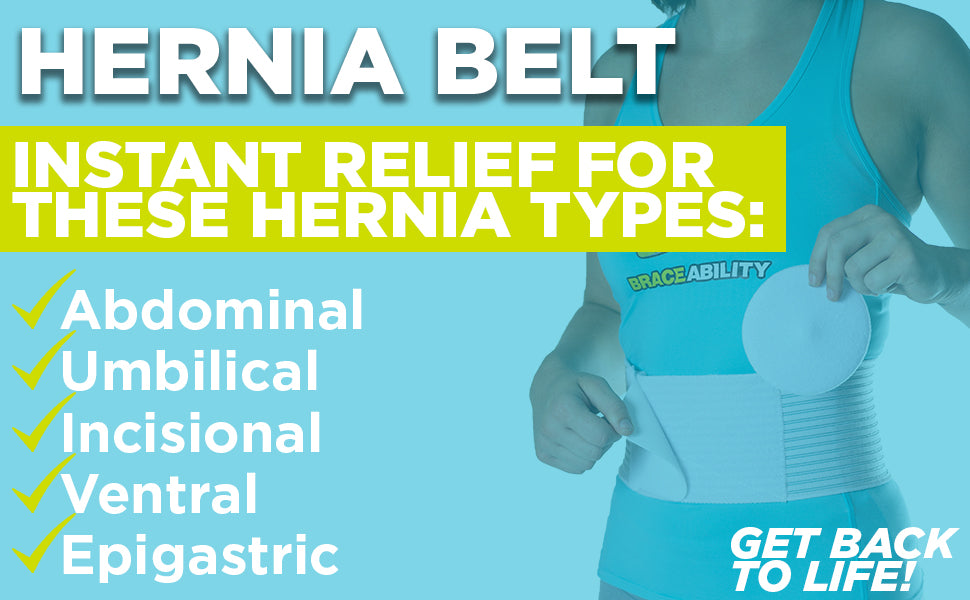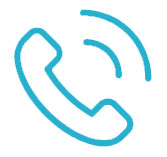Product Description
How Does This Hernia Brace Help Ease My Discomfort?
Wearing an abdominal hernia brace can help relieve discomfort and reduce recovery time following surgery for abdominal hernias, rather hiatal, ventral, navel (umbilical), or incisional. This belly button binder for hernia suffers works by providing compression and support at the location of your hernia, preventing it from bulging out of place or worsening.
Unfortunately, for many individuals suffering from a stomach hernia, the only way to completely get rid of, treat, or cure a hernia is by undergoing surgery to remove it. While waiting for your surgery, wearing a ventral hernia support band can help lower the amount of distress your body is experiencing.
For those adults looking to recover from hernia surgery, wearing a hernia truss post operation can help hold and protect the incision site. Your stomach will be very weak after enduring stomach surgery, but luckily, this hernia girdle helps support your stomach muscles and speed up recovery. This belt also lowers the chance of your hernia from recurring after surgery and allows your incision to properly heal. Wear this belt with or without the pad to provide compression and support to your abdominal wall so your muscles heal properly.
Unsure if you strained an abdominal muscle or might be developing a hernia? Check out this blog to learn about the difference between an abdominal strain vs. a hernia.
4 Features Making this Stomach Brace Worthy of the Title “Best Hernia Support”
-
Hiatal Hernia Pain Relief Belt Includes a Removable Silicone Pad
Perhaps the best feature of this belt for hiatal hernia natural treatment is that it comes with a pad. This pad is a vital component of the abdominal hernia binder because it has a raised bump, providing maximum compression directly to your hernia. The bump of the hernia pad should be placed above the top of the bulge to hold in your hernia and prevent it from protruding out more. Depending on the severity of your abdominal hernia, this pad can be removed if you’re looking for lighter support.
The pad is comprised of silicone and plastic, surrounded by a thin lycra cover (85% polyester, 15% spandex). These materials enable the pad to be durable enough to provide maximum support while also being comfortable against your skin. The pad has a washable cover made of terrycloth fabric (100% polyester) so you can wear it beneath your clothes without irritation.
It's secured with medical-grade, hook and loop fastener, allowing you to remove it and place it anywhere you’d like along the hernia diastasis recti truss. This feature adds customization to the belt because you can move it to the exact location of your hernia.
The many features of this pad help our hernia remedy bandage stand out compared to products you can buy at Walmart, Walgreens, CVS, or other big box stores. If you already have a hernia brace but the pad is getting old or overused, you can buy a replacement hernia pad.
-
This Belly Button Hernia Belt is Quick and Easy to Apply
This women’s and men’s hernia strap is quick and easy to apply by yourself. You simply place the pad on the belt then wrap the garment around your waist so the removable pad is placed over your hernia. The hook and loop fasteners are great for those who have arthritis in their hands, and the simple application also allows you to adjust or tighten the brace if needed.
-
Abdominal Hernia Support is Made of Lightweight & Breathable Material
This low-profile hernia corset is made of a nylon and spandex material, so you can hide it beneath or over your clothes, depending on your preference. This medical hernia remedy is also latex free, making it safe for those allergic.
-
Stomach Hernia Belt Has Removable, Flexible Spiral Stays to Prevent Rolling
There are two removable stays located on both sides of the female / male elastic hernia belt to prevent any uncomfortable rolling or bunching up of the brace. These stays enable you to wear the herniated belly button device all day without having to readjust it. If you'd like, you can remove these spiral stays.
Looking for more hernia truss belts? Check out our wide selection to find the best brace for your hernia location!

Common Abdominal Hernias: Types & Symptoms
Hernias can appear in many different locations, from numerous factors, and in mild to severe degrees and sizes. The most common hernias are inguinal hernias, occurring when fat or part of the small intestine bulges through a weak area in the lower abdominal wall near your groin. Aside from this common hernia, hernias can occur in your thighs, stomach, and upper chest area. Although we do have inguinal hernia sport compression shorts, this stomach wrap is intended to aid hernias in the abdomen region.
Just like an inguinal hernia, abdominal hernias also occur when weakened areas in the abdominal wall allow organs or other tissues to push through. There are several types of abdominal hernias. Here are the most common:
Hiatal Hernia
When the upper part of your stomach bulges through your diaphragm (the large muscle separating your abdomen and chest), it’s known as a hiatal hernia. Small hiatal hernias don’t tend to cause many issues, but larger bulges lead to food and acid entering the esophagus, which can cause symptoms.
Signs and symptoms include:
- Heartburn
- Excessive burping
- Pain in the chest or abdomen
- Issues swallowing
- Feeling full after meals
- Gastrointestinal bleeding (may become apparent if you vomit blood or have black stools)
Umbilical Hernia (A.K.A. Navel or Belly Button)
Umbilical or navel hernias arise near the belly button, occurring most commonly among infants and women but can affect men as well. An umbilical cord hernia occurs when your intestine pushes through the muscle directly behind your belly button. They account for one in every ten cases of an abdominal hernia.
Symptoms include:
- A visible bulge near your belly button, especially when coughing, laughing or straining
- Pain or pressure at the site of the bulge
Ventral or Incisional Hernia
A ventral hernia occurs when you have a bulge of tissues located in your abdomen wall as a result of muscle weakness. Commonly referred to as an incisional hernia, many ventral hernias are formed as a complication of abdominal surgery. Even though the stomach muscle typically repairs itself, it may become weakened in some cases, increasing the likelihood of tissue pushing through.
A parastomal hernia is a type of an incisional hernia created during ostomy formation. When a new stoma is formed, it should be brought through a muscle in your abdomen called the rectus abdominis. Placement of the stoma outside of this muscle (towards the side of your abdomen) can lead to a parastomal hernia around the stoma.
About 25 to 30% of individuals who’ve had surgery to their abdomen develop a hernia, making this type of a stomach hernia extremely common. Common risk factors include pregnancy, obesity, previous hernias, previous surgeries, family history, frequent lifting, bariatric procedures, and those who've had lung problems after surgery.
Suspect you have a ventral hernia? Symptoms include:
- A visible bulge close to the site of the surgical incision
- Sensations of pain or pressure, especially when straining
- Nausea or vomiting, in case of infection
Epigastric Hernia
An epigastric hernia occurs when fat pushes through a weak portion of your stomach or belly known as the peritoneum. Epigastric hernias typically are located in the middle of the stomach between the breastbone and belly button. Many of these hernias are present at birth but don’t appear until later in life, also known as a reducible hernia.
Common risk factors for both a man and woman include being plus size, muscle weakness, hereditary and straining.
Individuals with an epigastric hernia experience the following symptoms:
- Pain in upper belly
- Bulge in your abdomen wall
- Tenderness
- No symptoms at all

Frequently Asked Questions About This Brace for Hiatal Hernia Pain Relief
- What conditions / injuries does this hernia support brace treat? This truss support belt provides relief to those suffering from abdominal hernias such as umbilical, ventral, spigelian, epigastric, and incisional hernias. It’s also a great tool for those wanting or needing to postpone their hernia procedure.
- How does it work? Specifically designed to provide abdominal hernia support before surgery or as an alternative to surgery by keeping the protruding tissue in place and relieving pain.
- When should I wear it? The abdominal support belt can be worn before or after surgery. However, we strongly advise seeking medical counseling from a health care professional if you have specific questions, such as “Can I wear this during workouts and exercise?” or “Can I wear this while sleeping without complications?”
- What is it made of? Made of an 80% nylon and 20% spandex belt, a silicone, plastic, and polyester pad with a removable lycra / terrycloth cover. All components are latex free.
- Who can wear this brace? Men and women of all ages can benefit from the hernia relief support provided by this belt.
- What size should I buy? Using a soft, flexible tape measure, find the circumference around your body at the location of your hernia and refer to our size chart.
- How do I put it on? Identify the inside of the belt by locating the tag. Attach the pad to the opposite end. With the tag end in your right hand and the pad end in your left hand, wrap the belt around your body. Position the raised bump on the pad directly over your hernia. Attach the fastener to the compatible area. The two supportive stays on the sides can be removed if you wish. (Check the application pictures above if you have any questions.)
- Can I wear the brace under or over clothing? Yes, this hernia belt can be worn safely either against your skin or over clothing.
- What are the stays used for? The supportive stays help prevent rolling and bunching. If desired, they can be removed.
- How tall is this brace? Sizes S/M and L/XL are available in 5” or 8" height options
- Washing Instructions: Remove the terrycloth cover from silicone pad and stays from the belt. Hand wash the belt and pad cover in warm water with mild detergent and lay flat to air dry completely. Do not use high temperatures to wash or dry.
- Other features:
- Silicone pad provides localized compression on hernia
- Flexible material forms to your curves for a comfortable fit
- Nonabrasive, hook and loop fastener for easy application and adjustment
- Color: White.
























